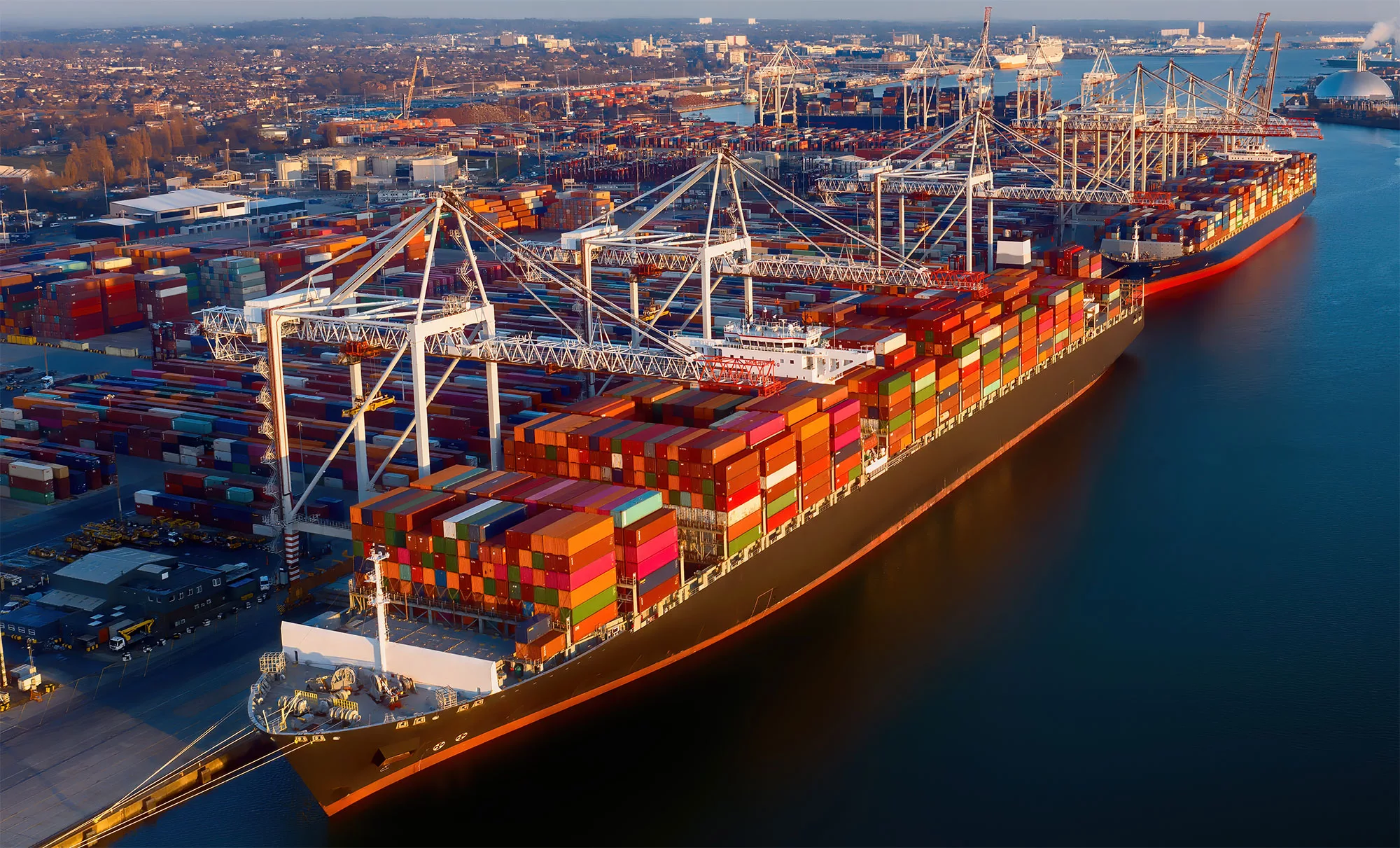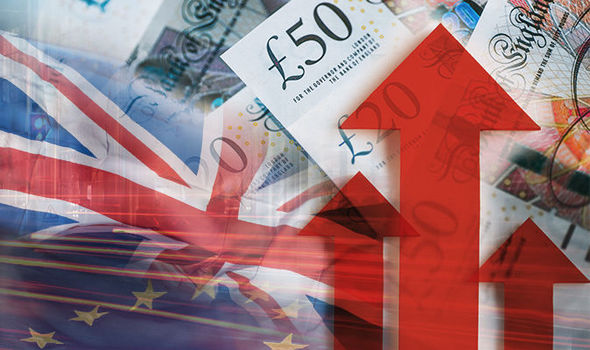[vc_row][vc_column width=”1/2″][vc_column_text]
United Kingdom
The light green area is the European Union
The UK is the sixth-largest economy in the world and third in Europe. But its prominence in the global economy is even greater than these rankings suggest because of its openness to trade and high level of development both economically and financially. London is the second most important world financial centre after New York and has the largest GDP of any city in Europe. Of the world's 500 largest companies, around 26 are headquartered here. The service sector contributes around 80 percent of GDP (financial services contributing 6.9 percent of GDP and 3.1 percent of all UK jobs.) The UK also has the second largest aerospace industry and the tenth largest pharmaceutical industry. It has been a net importer of energy since 2005 despite large oil reserves remaining in the North Sea (2.8bn barrels in 2016). The UK was the first country to industrialise and was the leading economy in the 19th and early 20th centuries. Benefitting from natural resources, particularly coal, the economy transitioned from agriculture to industrial production and trade. Its position was weakened by the two World Wars and accompanying debt, but along with the US played the key role in creating the institutional framework for today's global economy (Bretton Woods). The global financial crisis and resulting slowdown compounded domestic problems of falling house prices and high consumer debt leading to recession in 2008/9. Government finances also came under pressure with public debt increasing from 42 to 75 percent of GDP between 2007 and 2010. In 2010, the Conservative-led coalition with the Liberal Democrats initiated an austerity program, which was continued by the conservative government that followed. A subsequent conservative government indicated a return to spending, investment and a “new decade of renewal”. In June 2016, the UK voted via referendum to leave the EU but numerous delays to the exit agreement created political and economic uncertainty. The pound depreciated while exports, investment and consumer spending reduced. Critics argue that Brexit will jeopardise the importance of London as a global financial centre, but proponents counter that the UK will emerge stronger as a leading global free trade centre. By late 2019, the UK had already concluded close to 20 free-trade agreements to take effect post-brexit.
[/vc_column_text][vc_column_text] Its population in 2018 was 66,824,418 [1]
Its population in 2018 was 66,824,418 [1]
 In 2015, 8.71% of its total energy
In 2015, 8.71% of its total energy
consumption was renewable [2]
 In 2021, its GDP grew by 7.44% [2]
In 2021, its GDP grew by 7.44% [2]
 In 2021 it had a negative Current
In 2021 it had a negative Current
Account Balance of US$bn 82.48 [3]
 Its unemployment rate in 2021 was 4.50% [3]
Its unemployment rate in 2021 was 4.50% [3]
 Its Expenditure on R&D (as a percentage of
Its Expenditure on R&D (as a percentage of
GDP) in 2019 was 1.71% [2]
 A Big Mac will set you back the
A Big Mac will set you back the
local equivalent of US$4.07 [4]
What free trade areas or economic unions is it a member of?
None
[/vc_column_text][/vc_column][vc_column width=”1/2″][vc_column_text]Navigating Complexity: How The Access Bank UK Limited Delivers Unmatched Trade Finance Solutions
SteadyPay Embedded Microfinance Fintech: Safety Net for the Gig Worker
Trade: Engine Room of the United Kingdom
Rebecca Carter: Wise Words on Solar Energy
Lord Waverley: First In, Best Dressed — UK’s Bid to Join Key Regional Trade Agreement
CFI.co Meets Jennifer Martinel, Founder of Fidusmart, Switzerland: Seeking Out an Independent Path in Financial Management and Tax Advisory
Double Dip Recession in the Making, UK Expected to Emerge First
UK Struggles with Economic Illiteracy as Crisis Worsens
Herald Land: UK Prime Real Estate
CFI.co Meets the Founding CEO & MD of The Access Bank UK: Jamie Simmonds
Data specific to this country
UK inflation - Consumer Price Index (CPI)
UK Global Trade By Country - Exports
UK Global Trade By Country - Imports
[/vc_column_text][/vc_column][/vc_row][vc_row][vc_column][vc_column_text]What trade deals are there with other countries and economic unions?
Canada (Agreement in principle) (from 01/01/2021)
CARIFORUM - UK economic partnership agreement (from 01/01/2021)
ESA - UK economic partnership agreement (from 01/01/2021)
UK - Andean countries trade agreement (from 01/01/2021)
UK - Cameroon Agreement in principle (from 01/01/2021)
UK - Central America association agreement (from 01/01/2021)
UK - Chile association agreement (from 01/01/2021)
UK - Côte d'Ivoire Stepping Stone Economic Partnership Agreement (from 01/01/2021)
UK - Egypt Association Agreement (from 01/01/2021)
UK - EU Trade Deal (from 01/01/2021)
UK - Faroe Islands (from 01/01/2021)
UK - Georgia strategic partnership and cooperation agreement (from 01/01/2021)
UK - Israel trade and partnership agreement (from 01/01/2021)
UK - Japan Comprehensive Economic Partnership Agreement (from 01/01/2021)
UK - Kenya EPA (from 01/01/2021)
UK - Kosovo free trade agreement (from 01/01/2021)
UK - Lebanon association agreement (from 01/01/2021)
UK - Mexico Agreement (from 01/01/2021)
UK - Mexico free trade agreement (from 01/01/2021)
UK - Moldova Strategic Partnership, Trade and Cooperation Agreement (from 01/01/2021)
UK - Morocco trade agreement (from 01/01/2021)
UK - North Macedonia Agreement (from 01/01/2021)
UK - Norway, Iceland, and Liechtenstein free trade agreement (from 01/01/2021)
UK - Pacific economic partnership agreement (from 01/01/2021)
UK - Palestinian Authority political, trade and partnership agreement (from 01/01/2021)
UK - SACU+M trade agreement (from 01/01/2021)
UK - Serbia free trade agreement (from 01/01/2021)
UK - Singapore Agreement (from 01/01/2021)
UK - South Korea trade agreement (from 01/01/2021)
UK - Switzerland - Liechtenstein Trade Agreement (from 01/01/2021)
UK - Tunisia association agreement (from 01/01/2021)
UK - Türkiye Agreement (from 01/01/2021)
UK - Ukraine political, free trade and strategic partnership agreement (from 01/01/2021)
UK - Vietnam Agreement (from 01/01/2021)
UK - Ghana Interim Trade Partnership Agreement (from 05/03/2021)
UK - Albania free trade agreement (from 03/05/2021)
UK - Jordan trade agreement (from 03/05/2021)
[/vc_column_text][/vc_column][/vc_row]

























































































